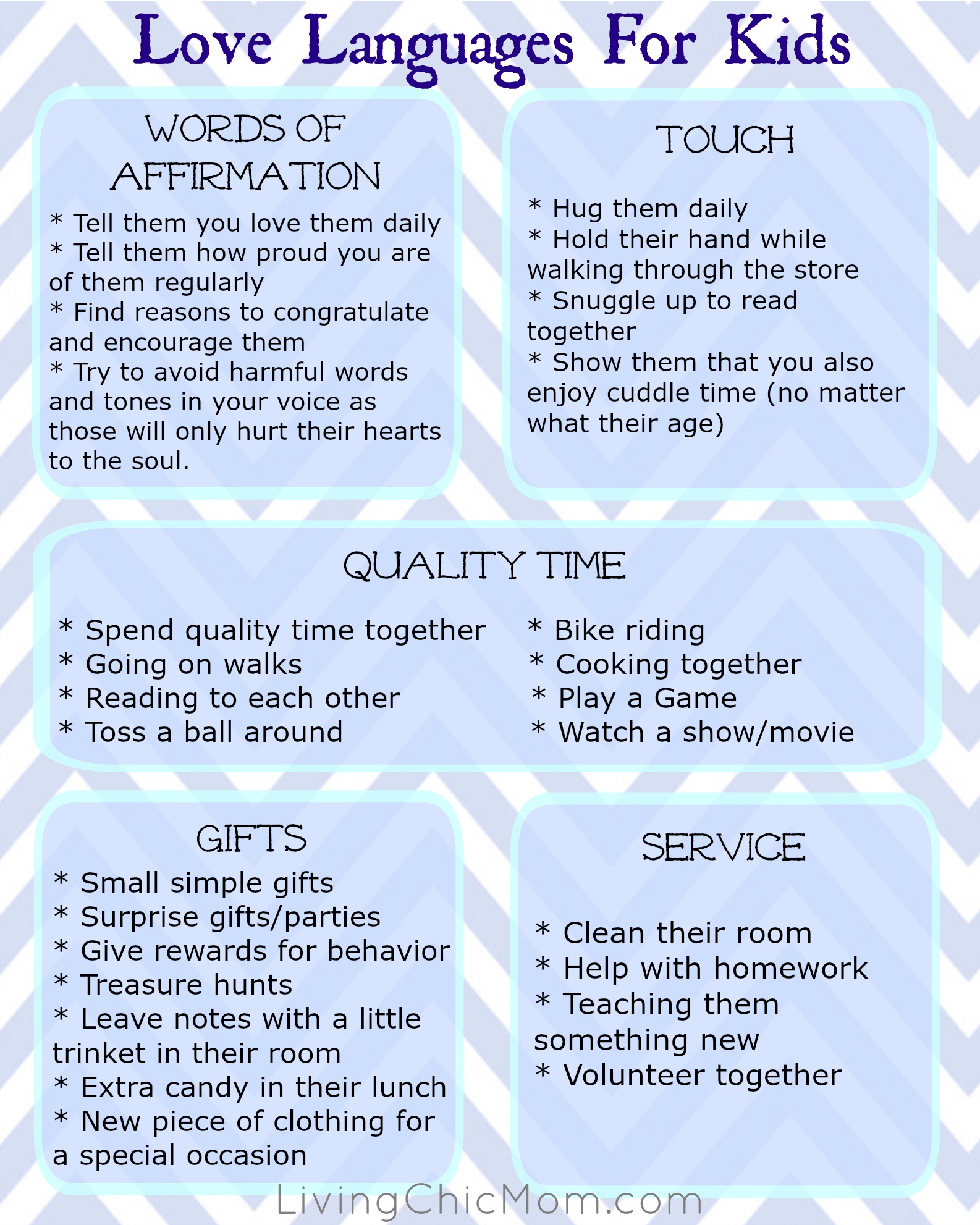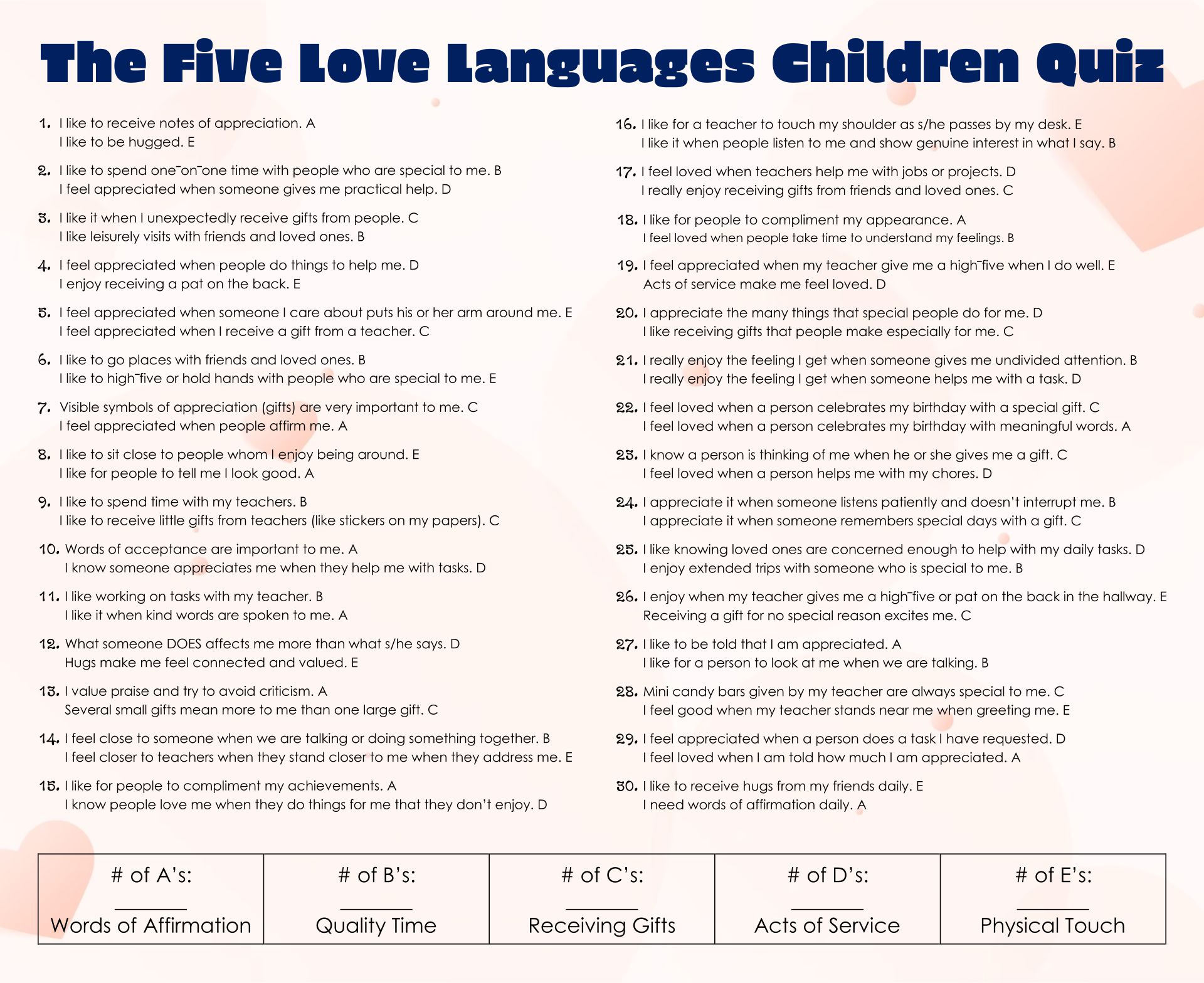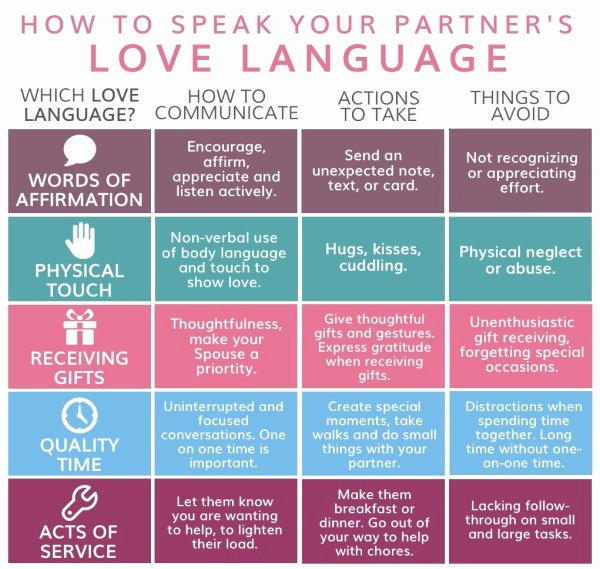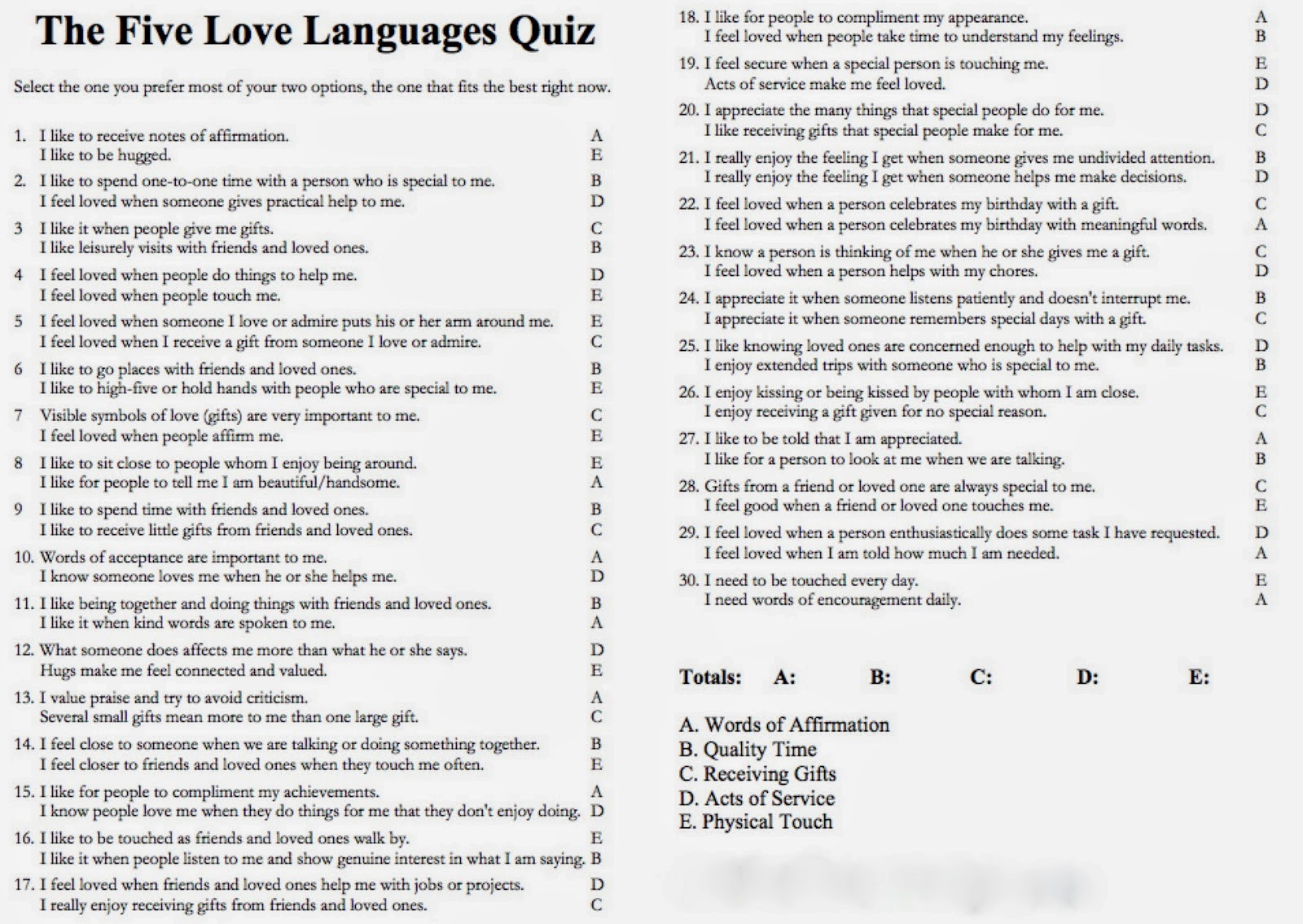Parenting is a beautiful journey filled with countless moments of love and joy. As parents, we always strive to show our children how much we love and care for them. But have you ever wondered if there is a specific way that resonates with your child more than others? Understanding your child’s love language can be a game-changer in how you express your love to them.
Discovering the Love Languages
 One of the most fascinating concepts I’ve come across is the idea of love languages. Developed by Dr. Gary Chapman, the concept suggests that there are five primary ways people give and receive love. These love languages are words of affirmation, acts of service, receiving gifts, quality time, and physical touch.
One of the most fascinating concepts I’ve come across is the idea of love languages. Developed by Dr. Gary Chapman, the concept suggests that there are five primary ways people give and receive love. These love languages are words of affirmation, acts of service, receiving gifts, quality time, and physical touch.
Each person has a unique love language, and understanding your child’s love language can truly transform your relationship. By speaking your child’s love language, you make them feel seen, valued, and deeply loved.
Exploring the Five Love Languages
 Let’s take a deeper look at the five love languages to better grasp how they can be applied in parenting.
Let’s take a deeper look at the five love languages to better grasp how they can be applied in parenting.
1. Words of Affirmation
Children whose love language is words of affirmation thrive on kind and encouraging words. Taking the time to express your love, pride, and appreciation for them can have a profound impact on their self-esteem and emotional well-being.
2. Acts of Service
For children who appreciate acts of service, actions truly speak louder than words. Taking the initiative to help them with their chores, homework, or even a small task can make them feel deeply loved and cared for.
3. Receiving Gifts
Some children appreciate tangible symbols of love. It’s not about the monetary value of the gift but rather the thought and effort put into selecting something meaningful. Surprising them with little tokens of affection can make their day.
4. Quality Time
 Children who value quality time crave undivided attention. Making time in your busy schedule to simply be present with them, engaging in activities they enjoy, can create cherished memories and deepen your bond.
Children who value quality time crave undivided attention. Making time in your busy schedule to simply be present with them, engaging in activities they enjoy, can create cherished memories and deepen your bond.
5. Physical Touch
Hugs, kisses, and affectionate gestures play a vital role in expressing love for children whose primary love language is physical touch. Simple gestures like holding hands, giving a pat on the back, or snuggling can communicate love in the most powerful way.
Identifying Your Child’s Love Language
 Discovering your child’s love language can be a fun and enlightening process. One way to do this is by taking the 5 Love Languages quiz, designed specifically for children. This quiz helps pinpoint their preferred love language, giving you valuable insights into how to best express your love.
Discovering your child’s love language can be a fun and enlightening process. One way to do this is by taking the 5 Love Languages quiz, designed specifically for children. This quiz helps pinpoint their preferred love language, giving you valuable insights into how to best express your love.
It’s important to note that a child’s love language may evolve over time. Stay attuned to their needs and observe how they respond to various expressions of love. Pay attention to the little things that light up their eyes and bring a smile to their face.
Nurturing Relationships Through Love Languages
 Once you’ve identified your child’s love language, the next step is to incorporate it into your daily interactions. Make a conscious effort to speak their love language consistently. It’s not about grand gestures but rather small gestures of love that accumulate over time.
Once you’ve identified your child’s love language, the next step is to incorporate it into your daily interactions. Make a conscious effort to speak their love language consistently. It’s not about grand gestures but rather small gestures of love that accumulate over time.
As parents, we bear the tremendous responsibility of shaping our children’s emotional well-being. By investing time and effort into speaking their love language, we nurture their self-esteem, emotional security, and overall happiness.
Embracing the Love Languages

Remember, expressing love in your child’s preferred language helps them feel deeply cherished and understood. The impact of embracing their love language will be profound, fostering a strong bond and building a foundation of love and trust that will last a lifetime.
The Journey of Love Languages
 As parents, we must remember that each child is unique and has different emotional needs. Embracing the concept of love languages allows us to tailor our expressions of love to resonate deeply with our children.
As parents, we must remember that each child is unique and has different emotional needs. Embracing the concept of love languages allows us to tailor our expressions of love to resonate deeply with our children.
By speaking your child’s love language, you strengthen your connection with them and cultivate an environment of love and understanding. The journey of discovering and nurturing your child’s love language is one that will bring immense joy and fulfillment to both you and your child.
Final Thoughts
 As parents, our love for our children knows no bounds. Taking the time to understand and speak their love language is a beautiful way to deepen our connection and show them just how much they mean to us.
As parents, our love for our children knows no bounds. Taking the time to understand and speak their love language is a beautiful way to deepen our connection and show them just how much they mean to us.
I encourage you to explore the concept of love languages further and discover the unique love language of your child. By doing so, you open the doors to a world of love, growth, and emotional well-being for your child.
Remember, you are the greatest source of love and affection for your child. Embrace the opportunity to make them feel cherished and loved in their own special way.
The journey of parenting is full of unexpected twists and turns, but by speaking your child’s love language, you create a solid foundation of love and understanding that will guide them throughout their lives.